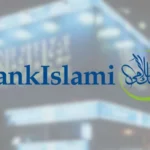In a significant move to support Pakistan’s environmental future, Coca-Cola İçecek (CCI) Pakistan has announced new funding for the Restoring River Ravi Project. The initiative, revealed during a high-level stakeholder strategy session, marks a key step in CCI’s journey toward achieving water neutrality by 2030.
With ongoing water challenges threatening ecosystems and communities, CCI Pakistan is taking bold action. The project, which focuses on water replenishment in Lahore and Faisalabad, is being executed in collaboration with WWF Pakistan. The aim is to restore the health of the Ravi Basin through community-driven and scalable water solutions.
Speaking at the session, CCI Pakistan General Manager Mr. Sunay Sanlı emphasized the broader vision. “This project is not only about infrastructure—it is about long-term impact, collaboration, and responsibility,” said Mr. Sanlı, a Turkish national with global experience across Central Asia. “We are proud to bring this vision to life with WWF and our local partners, and we remain committed to measurable change.”
The Restoring River Ravi Project is already making strides, with prior investments of USD 120,000 creating a current replenishment capacity of 100 million liters. Expansion is underway in Faisalabad to further enhance these efforts. Key components include rainwater harvesting, groundwater recharge wells, floating wetland systems, and public awareness campaigns like Fix the Leak.
CCI’s dedication to sustainability goes beyond just water. As a major multinational beverage company under Türkiye’s Anadolu Group, CCI operates 33 bottling plants and 3 fruit processing plants across 12 countries, including Pakistan. With a service base of over 600 million people, the company continues to strengthen its partnerships with both public and private sector stakeholders for a more water-secure and environmentally resilient Pakistan.
The initiative reflects a growing trend in corporate responsibility and environmental stewardship, as companies like CCI aim to not just do business in Pakistan, but contribute to its sustainable development.







